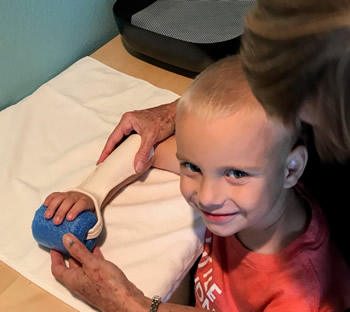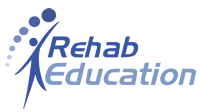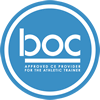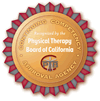Pediatric Hand Therapy and Orthotic Intervention for Musculoskeletal Conditions
15 1/2 contact hours
 For Pediatric Therapists who treat hands, and Hand Therapists who treat children!
For Pediatric Therapists who treat hands, and Hand Therapists who treat children!
Pediatric patients are different from adult patients and can pose many challenges. This specialized, hands-on hybrid online CE course provides a valuable learning opportunity for therapists who are challenged by the orthopedic issues that arise when treating musculoskeletal conditions in a pediatric patient. In addition to didactic learning, you will enhance your clinical skills by fabricating 6 orthoses.
Pediatric patients are different from adult patients and can pose many challenges. In this hybrid online CE course with 2 one-hour Virtual Classroom meetings, you will:
- learn strategies to successfully meet these challenges and understand approaches for evaluating, treating, and providing orthoses (splints) and home programs for the pediatric patient with musculoskeletal conditions.
- gain knowledge and skills through lectures, demonstrations, independent orthotic fabrication labs, and case scenarios.
- focus on planning treatment, therapy ideas, orthoses recommendations, and goals setting.
- successfully create and design 6 orthoses (splints).
Presented with support from evidence-based information regarding normal hand development, evaluation, therapeutic intervention and orthotic intervention.
Course features:
- recorded lectures
- recorded step-by-step demonstrations and specialized techniques for fabrication of orthoses
- independent orthosis fabrication: we include thermoplastics and splint supplies for you to fabricate 6 orthoses -- an $85 value (supplies can only ship to US mailing addresses)
- case study assignments
- two 75 minutes interactive Virtual Classroom Zoom meetings–focusing on case studies, review of fabrication techniques, Q & A
- email access to the instructor throughout the course
Prior to the first Virtual Classroom Zoom meeting, you must complete 5 1/2 hours of recordings, case study assignments and fabricate several orthoses
Prior to the second Virtual Classroom Zoom meeting, you must complete 3 hours of recordings, case study assignments and fabricate several orthoses.
Please consider the above requirements when you select your Virtual Classroom Zoom meetings.
You must attend BOTH meetings of your selected session to receive full CE credits.
You are required to provide a heating pan, heavy duty hole punch and splinting scissors. Download list of course supplies.
Please read course requirements carefully BEFORE registering for this course. All courses are final sale.
Course includes review of:
- normal hand skill development from birth to 5 years
- most common pediatric outcomes measures and evaluation tools for orthopedic conditions
- developmental and functional issues for children with musculoskeletal conditions
- identification of specific orthotic intervention for children with musculoskeletal conditions
- pre-surgical and post-surgical intervention strategies for commonly treated pediatric musculoskeletal, neuromuscular and rheumatologic conditions.
- overview of orthotic intervention principles and techniques specifically for pediatric patients
- decision making skills for therapy intervention, home program and orthotic intervention
- methods to encourage cooperation during fabrication with pediatric patients
- methods to enhance compliance with use of the orthoses with pediatric patients
- review of available prefabricated orthoses for pediatric patients
Please read course requirements carefully before registering for this course. Online courses are final sale and are not refundable. Please note that supplies for fabrication of 6 required orthoses can only ship to US mailing addresses.
You must register a minimum of two weeks prior to the start of the Zoom series to allow time to receive your course supplies and have time to fabricate your orthoses.
Course Requirements:
As a requirement of this course, you will need to:
- view recorded lectures and demonstrations for lesson 1-6 prior to attending the first required Virtual Classroom via Zoom.
- view recorded lectures and demonstrations for lesson 7-9 prior to attending the second required Virtual Classroom via Zoom.
- have access to splinting tools and supplies.
- have access to another person (child or adult) on whom you can fabricate 6 upper extremity orthoses.
- complete six orthoses fabricated on another person.
- photograph and share access to photos of your 6 orthoses. You will submit links to your photos in your cloud storage, i.e. Dropbox, Google Drive, iCloud, etc. (Due to file size limitations, file uploads may not be supported by email.)
- demonstrate proficiency with orthosis fabrication. Instructor will evaluate orthosis fabrication and determine proficiency of 100% correct using 3 variables.
- complete quizzes at end of each lesson, and four case study assignments.
- participate in two scheduled one-hour Virtual Classroom sessions (via Zoom) with the instructor. These will review fabrication techniques, completed orthoses, case studies and provide additional opportunity for questions and answers.
- complete course post-test with a passing grade of 85%
- complete course evaluation.
For a list of required splinting tools and supplies click here.
Technology Requirements:
- computer/tablet with speakers and good internet access to view course videos.
- computer/tablet with webcam, microphone and speakers or Smartphone will be needed to participate in Zoom meeting with instructor.
- Smartphone camera or digital camera/camcorder will be needed to photograph or video record fabrication of specific orthoses.
- ability to share links to your photographs/short videos of orthoses, stored in your cloud-based storage, i.e. Dropbox, Google Drive, iCloud, YouTube account, Vimeo account, etc. (Due to file size limitations, file uploads may not be supported by email.)
- email access for communication about the course.
By the end of this course, participants will:
- Identify 3 unique aspects of hand therapy for pediatric patients with musculoskeletal conditions.
- Identify the appropriate age norms for 3 specific developmental skills below the age of 5 years that affect hand skill development
- List 3 pediatric evaluation tools that are standardized for use on pediatric patients with upper extremity conditions.
- Choose 2 treatment techniques that would be appropriate to utilize after surgery for a pediatric patient with one of the following conditions: brachial plexus palsy, upper extremity trauma, congenital hand conditions, neuromuscular disorders, and rheumatologic conditions
- Identify 3 ways to improve compliance and wear time with orthotic intervention for a pediatric patient with musculoskeletal conditions
- Compare two differences in treatment of flexor tendon repair of the hand for pediatric patients vs. adult patients.
- Adapt 3 common items found in the home or clinic into treatment or home program ideas for improving motion or function of the upper extremity
- Create 6 orthoses, from beginning of the design process to the finalization of the orthotic fabrication, correctly utilizing all of the orthotic mechanical principles.
- Critique each fabricated orthosis for correct fit by utilizing 3 factors: freedom of distal joints, 3 points of pressure, appropriate application of straps.
- Propose 3 appropriate therapy goals and treatment strategies for the pediatric patient with neuromuscular condition described in the scenario.
Complete these self-study video-recorded lectures and demonstrations of fabrication, case studies, assignments and quizzes- prior to the first Zoom session:
- Fundamentals of Pediatric Hand Therapy (approximately 80 minutes)
- Pediatric Orthotic Intervention (approximately 90 minutes)
- Brachial Plexus Birth Palsy (approximately 100 minutes)
- Pediatric Upper Extremity Trauma (approximately 110 minutes)
- Pediatric Rheumatological Conditions (approximately 30 minutes)
- Creative Treatment Ideas (approximately 35 minutes)
- Pediatric Radial Deficiencies (approximately 90 minutes)
Zoom Classroom #1 (75 minutes)
Complete these self-study video-recorded lectures and demonstrations of fabrication, case studies, assignments and quizzes- prior to the second Zoom Classroom meeting:
- Pediatric Thumb and Finger Deformities (approximately 100 minutes)
- Arthrogryposis (approximately 100 minutes)
- Pediatric Neuromuscular Conditions ( approximately 125 minutes)
Zoom Classroom #2 (75 minutes)
- Course evaluation and Post-test
15.5 Contact Hours (15.5 clock hours)
BOC Level: Intermediate
(2 contact hours of synchronous learning and 13.5 hours asynchronous learning)
This course is accepted by many professional credentialing organizations and state professional regulatory boards. Rules and regulations change frequently without notification, and apply differently to live and online courses. Please check with your state board to confirm accuracy of this list and acceptance of contact hours. Certificate of Attendance will be issued to all participants upon completion of the course and may be used for CEU verification of credits. CE credits vary by state. Please check with your state board/certifying agency to confirm conversion of contact hours to CE.
Rehab Education, LLC is recognized as:
- AOTA approved provider of OT and OTA continuing education (#6177).
- approved provider of PT and PTA continuing education by the NY State Education Department Board of Physical Therapy.
- approved provider of PT and PTA continuing education by IDFPR/ Illinois Board of Physical Therapy (#216000227).
 American Occupational Therapy Association (AOTA): Rehab Education, LLC is an AOTA Approved Provider (#6177) of professional development. This Blended/Hybrid Learning CE course is offered at 1.55 CEU (15.5 clock hours) Intermediate level | OT Service Delivery/Foundational Knowledge. The assignment of AOTA CEUs does not imply endorsement of specific course content, products, or clinical procedures by AOTA or indicate AOTA approval of a certification or other professional recognition. (Course must be completed prior to 7/31/2025)
American Occupational Therapy Association (AOTA): Rehab Education, LLC is an AOTA Approved Provider (#6177) of professional development. This Blended/Hybrid Learning CE course is offered at 1.55 CEU (15.5 clock hours) Intermediate level | OT Service Delivery/Foundational Knowledge. The assignment of AOTA CEUs does not imply endorsement of specific course content, products, or clinical procedures by AOTA or indicate AOTA approval of a certification or other professional recognition. (Course must be completed prior to 7/31/2025)
Arkansas Physical Therapy Association: This course has been approved by the Arkansas APTA for 15.5 contact hours. Approval #APTA-AR 2016
 Board of Certification, Inc (BOC) Approved Provider #P8271: Rehab Education, LLC (BOC AP#: P8271) is approved by the Board of Certification, Inc. to provide continuing education to Certified Athletic Trainers. This program is eligible for a maximum of 15.5 Category A hours/CEUs. ATs should claim only those hours actually spent in the educational program. (Course must be taken before 3-31-2026)
Board of Certification, Inc (BOC) Approved Provider #P8271: Rehab Education, LLC (BOC AP#: P8271) is approved by the Board of Certification, Inc. to provide continuing education to Certified Athletic Trainers. This program is eligible for a maximum of 15.5 Category A hours/CEUs. ATs should claim only those hours actually spent in the educational program. (Course must be taken before 3-31-2026)
California OT Board: This course and instructor have been approved by the CA Board of OT for 15.5 contact hours of post-professional education in the advanced practice area of hand therapy. Approval #22-H23.
 Physical Therapy Board of California: The Physical Therapy Board of California recognizes Rehab Education, LLC as an approval agency to approve providers offering continuing competency courses for CA licensed PTs and PTAs. This course is approved for 15.5 contact hours (13.5 hours asynchronous and 2 hours synchronous).
Physical Therapy Board of California: The Physical Therapy Board of California recognizes Rehab Education, LLC as an approval agency to approve providers offering continuing competency courses for CA licensed PTs and PTAs. This course is approved for 15.5 contact hours (13.5 hours asynchronous and 2 hours synchronous).
Illinois State Board of Physical Therapy: Approved CE Sponsor by Illinois State Board of Physical Therapy, Division of Professional Regulations, Approval #216.000227. (Course must be taken prior to 09-30-2026)
NY State Physical Therapy Board: Rehab Education, LLC is recognized as an approved provider of PT and PTA continuing education by the NY State Education Department Board of Physical Therapy. (Course must be taken prior to 05-10-2025)
States that Accept AOTA Approval / PT State Boards’ Approval Reciprocity
The assignment of AOTA CEUs does not imply endorsement of specific course content, products, or clinical procedures by AOTA. At the time of listing, these states currently recognize AOTA Approved Providers for OT continuing education either in regulatory language or by formal written communication to AOTA. For an up-to-date list, see the AOTA website.
Alabama
Alaska
Arkansas
Arizona*
California
Delaware
District of Columbia
Florida **(self-report to CE Broker)Georgia*
Illinois
Indiana
Kentucky
Louisiana*
Maryland
Massachusetts
MichiganMinnesota
Mississippi*
Missouri
Montana
Nevada
New Hampshire
New Mexico
New YorkNorth Carolina
North Dakota
Ohio
Oregon
Oklahoma
Pennsylvania
Rhode IslandSouth Carolina*
South Dakota
Tennessee*
Texas
Vermont
Virginia
Wisconsin (self study courses only)
*see CE Broker
**FL licensees may need to self-submit courses in CE BrokerDisclaimer: Rehab Education LLC provides this list for your convenience. At the time of listing, the following state boards accept courses by virtue of approval by other organizations. It is the responsibility of the participant registering for a course to check with their state board to confirm rules and regulations regarding acceptance of contact hours for live and online courses.
The following PT Boards accept courses approved by other PT State boards*:
Alaska
Delaware
District of Columbia
Hawaii
IllinoisIndiana
Kansas
Kentucky
Michigan
MontanaNorth Carolina
North Dakota
Oregon
Pennsylvania
TennesseeUtah
Vermont
Virginia
Wyoming
The following PT Boards accept courses approved by other APTA state associations*:
Alaska
Arizona
Delaware
District of Columbia
Florida **(self-report to CE Broker)
GeorgiaKansas
Kentucky
Mississippi
Missouri
North Carolina
North DakotaRhode Island
South Dakota
Utah
Vermont
Virginia
Wyoming
The following PT Boards do not require pre-approval for continuing education activities as long as they are “directly related to the licensee’s practice of physical therapy” and/or meet the guidelines established by the board.
Alabama
Colorado
Connecticut
Iowa
New Hampshire
Washington
Wisconsin
HELPFUL LINKS:
*NBCOT…National Board for Certification of Occupational Therapy (view PDU requirements)+HTCC… Hand Therapy Certification Commission (view recertification requirements)
Hand Therapy Certification Commission (HTCC): This course is accepted by HTCC towards re-certification.
Fast Facts
Skill Level: Intermediate
Delivery Method: Online Hybrid
Who Should Attend:
- Occupational Therapists
- Physical Therapists
- Certified Hand Therapists
- Certified Athletic Trainers
During checkout, select from one of the following session sets. You must attend BOTH 1-hour Zoom Virtual Classrooms of your selected session to receive full CE credits.
Online Zoom Meeting:
Sundays, May 18 and Jun 22, 2025
8pm Eastern Time /5pm Pacific time
Sundays, July 27 and Aug 24, 2025
8pm Eastern Time /5pm Pacific time
Sundays, Sept 28 and Oct 26, 2025
8pm Eastern Time /5pm Pacific time
Sundays, Nov 2 and Dec 7, 2025
8pm Eastern Time /5pm Pacific time
Thank you so much Jill!
Anyone who is interested in providing optimal splinting care for the pediatric population, must take this class!
Instructors:
Jill Peck-Murray, MOT, OTR/L, CHT

is a pediatric hand therapist. She worked as an occupational therapist/hand therapist at Rady Children’s Hospital in San Diego, California from 1982-2017. During those 35 years, she gained expertise in pediatric hand therapy and special skills in creative orthotic intervention and developed the pediatric hand therapy program for the hospital.
She is currently devoting her time to sharing her knowledge with the therapy community by teaching continuing education courses. Since 2007, she has been a national CEU instructor for Rehab Education, LLC.
Jill has authored several journal articles, two chapters on pediatric splinting/orthotic intervention, and she has co-authored a book entitled “101 Creative Therapy Ideas.” She has presented at multiple national and international conferences for professional organizations.
This course was really helpful
I was happily surprised at how much I enjoyed taking the course in this format. Being able to view the recorded lectures was great for fitting the course into my busy schedule. The instructional videos for fabricating splints were very clear and detailed. I liked that I could stop and restart the instructional videos, so that I could splint along with the instructor. The online zoom meetings with the instructor and other therapists taking this course were really helpful by reviewing case studies and the splints that we fabricated. I now feel much more confident when making pediatric splints.
Jill is incredibly knowledgeable about hand treatment and orthoses. Not only did I learn about when a splint may be appropriate and what kind of splint to use, but I learned new tricks that can be applied to splints I am already fabricating to ensure better fit/less likelihood of being removed.
Jill presented some clever splint patterns and simple modifications that I will definitely put into practice. The resources are invaluable, and I will definitely utilize them as I improve my skills to mentor younger therapists. The organization of the course really facilitated learning. I know a course like this is a huge undertaking and I really appreciate all your hard work and willingness to share your knowledge.
What Students are Saying:
I would definitely recommend this course!
This course exceeded my expectations. The format worked well, and it was really convenient to have the splinting materials and supplies shipped to me so I did not have to purchase them on my own. It was helpful to get a change to try out and get comfortable with splinting materials that I never used before.
The online format of this class has been a great experience
The online format of this class has been a great experience because it let me complete things on my own time, but also allowed for live interaction. I have already started using the methods taught in this class to enhance the skill with which I treat my patients with various diagnoses.
I really enjoyed this format
I found the hybrid between self-study and zoom to very flexible and accommodating to my busy schedule. I was able to complete the learning at home one unit at a time, which let me digest the information, assimilate it, and then apply it to patients. Because the materials were all included, fabricating orthoses at home was convenient and with less pressure than in a group orthosis session. Coming together in the Zoom sessions allowed us to ask questions of Jill, review case studies, and analyze orthoses. Also, the deadline of the scheduled Zoom sessions kept me on track at home. I really enjoyed this format.

 American Occupational Therapy Association (AOTA): Rehab Education, LLC is an AOTA Approved Provider (#6177) of professional development. This Blended/Hybrid Learning CE course is offered at 1.55 CEU (15.5 clock hours) Intermediate level | OT Service Delivery/Foundational Knowledge. The assignment of AOTA CEUs does not imply endorsement of specific course content, products, or clinical procedures by AOTA or indicate AOTA approval of a certification or other professional recognition. (Course must be completed prior to 7/31/2025)
American Occupational Therapy Association (AOTA): Rehab Education, LLC is an AOTA Approved Provider (#6177) of professional development. This Blended/Hybrid Learning CE course is offered at 1.55 CEU (15.5 clock hours) Intermediate level | OT Service Delivery/Foundational Knowledge. The assignment of AOTA CEUs does not imply endorsement of specific course content, products, or clinical procedures by AOTA or indicate AOTA approval of a certification or other professional recognition. (Course must be completed prior to 7/31/2025) Board of Certification, Inc (BOC) Approved Provider #P8271: Rehab Education, LLC (BOC AP#: P8271) is approved by the Board of Certification, Inc. to provide continuing education to Certified Athletic Trainers. This program is eligible for a maximum of 15.5 Category A hours/CEUs. ATs should claim only those hours actually spent in the educational program. (Course must be taken before 3-31-2026)
Board of Certification, Inc (BOC) Approved Provider #P8271: Rehab Education, LLC (BOC AP#: P8271) is approved by the Board of Certification, Inc. to provide continuing education to Certified Athletic Trainers. This program is eligible for a maximum of 15.5 Category A hours/CEUs. ATs should claim only those hours actually spent in the educational program. (Course must be taken before 3-31-2026) Physical Therapy Board of California: The Physical Therapy Board of California recognizes Rehab Education, LLC as an approval agency to approve providers offering continuing competency courses for CA licensed PTs and PTAs. This course is approved for 15.5 contact hours (13.5 hours asynchronous and 2 hours synchronous).
Physical Therapy Board of California: The Physical Therapy Board of California recognizes Rehab Education, LLC as an approval agency to approve providers offering continuing competency courses for CA licensed PTs and PTAs. This course is approved for 15.5 contact hours (13.5 hours asynchronous and 2 hours synchronous).